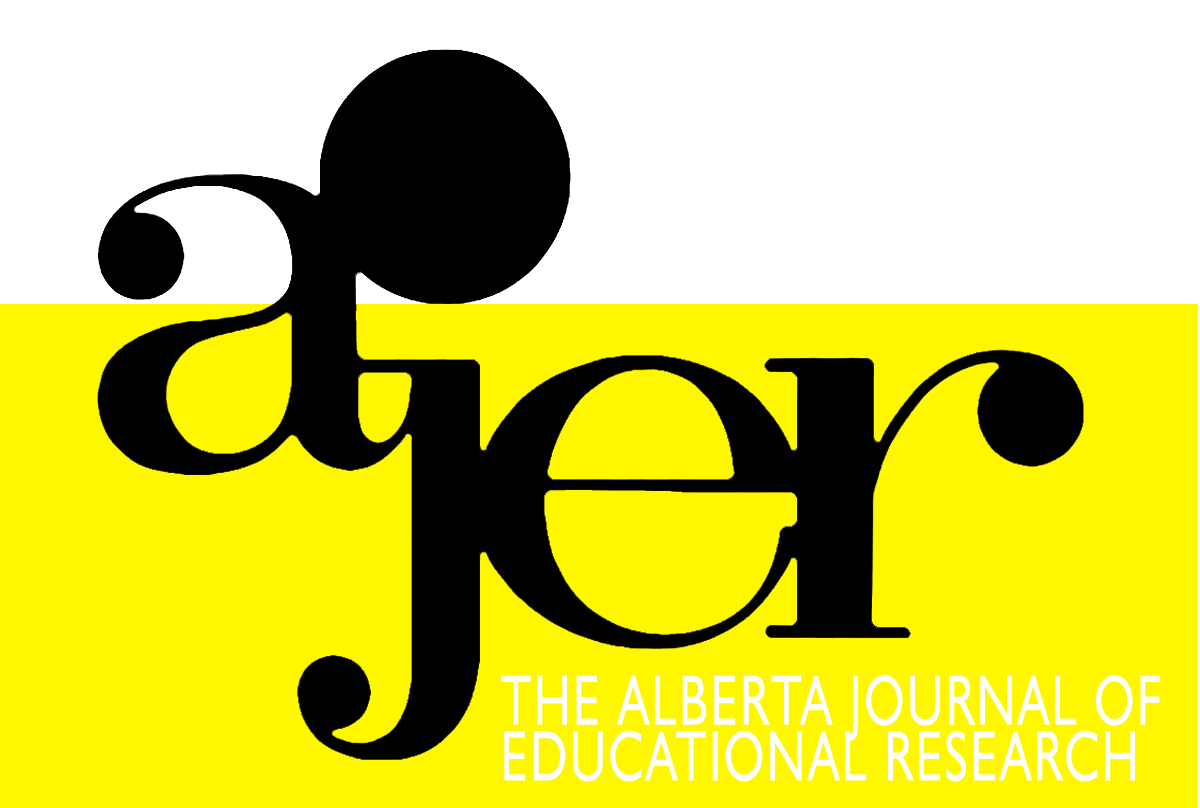Mentorship within Doctoral Research Assistantships: A Canadian Case Study
DOI:
https://doi.org/10.55016/ojs/ajer.v65i3.56596Abstract
This article explores research assistantship (RAship) experiences of doctoral students in one program in a Faculty of Education at a Canadian university in the province of Ontario during a specific period of time. Doctoral students’ development as researchers is a key objective in higher education institutions nationwide. RAships provide opportunities in which doctoral students can be mentored and nurtured as future researchers. However, few scholars have investigated mentoring relationships within doctoral RAships, which are rooted in research assistants’ (RAs’) lived experiences. Data for this case study were drawn from personal interviews with six doctoral students and complemented by the voices of five research supervisors and two administrators. Findings show that although RAships offer the potential for mentorship, not all RAships involve mentoring relationships. Some of the uncovered relationships between RAs and their supervisors were positive while some seemed exploitative. Results indicate that, to various degrees, research supervisors control the experiences to which RAs are exposed. Given the results of this research, more comprehensive studies are needed to identify how research supervisors might engage more effectively in inherently unequal collaborations with RAs.
Keywords: research assistantships, mentorship, doctoral students, power dynamics, case study
Cet article porte sur les expériences de doctorants travaillant comme assistants à la recherche dans un programme de la faculté d’éducation d’une université canadienne dans la province de l’Ontario pendant une période déterminée. Partout au Canada, les établissements d’études supérieures ont comme objectif majeur de développer leurs doctorants en chercheurs. Les postes d’assistants à la recherche offrent à ces étudiants un encadrement et un mentorat qui les soutiennent alors qu’ils sont en voie de devenir chercheurs. Toutefois, peu de recherches se sont penchées sur les expériences des doctorants dans la relation de mentorat découlant des postes d’assistants à la recherche. Les données de cette étude de cas proviennent d’entrevues personnelles auprès de six doctorants, et de contributions de la part de cinq directeurs de recherche et deux administrateurs. Les résultats indiquent que si les postes d’assistants à la recherche offrent la possibilité d’une relation de mentorat, cette relation n’est pas présente dans tous les postes. Certaines des relations entre les assistants à la recherche et les doctorants se sont avérées positives alors que d’autres semblaient abusives. Les résultats indiquent que les directeurs de recherche contrôlent, à divers degrés, les expériences auxquelles sont exposées les assistants à la recherche. Compte tenu de ces résultats, il serait important d’entreprendre des études plus approfondies pour identifier les façons dont les superviseurs pourraient mieux s’engager dans des collaborations, qui sont inégales à la base, avec les assistants à la recherche.
Mots clés : postes d’assistants à la recherche; mentorat; doctorants; dynamique du pouvoir; étude de cas
Downloads
Published
Issue
Section
License
UNIVERSITY OF ALBERTA COPYRIGHT LICENSE AND PUBLICATION AGREEMENT
If accepted, authors will be asked to sign a copyright agreement with the following points:
A. Where there is any inconsistency between this Copyright License and Publication Agreement and any other document or agreement in relation to the same subject matter, the terms of this Agreement shall govern.
B. This document sets out the rights you are granting in relation to publication of your article, book review, or research note entitled (the “Article”) through inclusion in the academic journal titled Alberta Journal of Educational Research (the “Journal”) published through the Faculty of Education, representing the Governors of the University of Alberta (the “Journal Editor”).
C. There will be no payment to you for this publication and grant of rights. In consideration of the agreement to publish the Article in the Journal:
1. You are warranting that:
- the content of the Article is your original work, and its content does not contain any material infringing the copyright of others; or, where the Article is not entirely your original work, you have obtained all necessary permissions in writing to grant the rights you are giving in this agreement;
- the content of the Article does not contain any material that is defamatory of, or violates the privacy rights of, or discloses the confidential information of, any other person;
- the Article has not been published elsewhere in whole or in part, and you will not allow publication of the Article elsewhere without the consent of the Journal Editor;
- the names of all co-authors and contributors to the Article are:
2. You agree to license the copyright in the Article to the Journal Editor, on a worldwide, perpetual, royalty free basis; and to the extent required by the terms of this agreement. You shall retain the right at all times to be acknowledged as the/an author of the Article.
3. You further agree that the Journal Editor has the entitlement to deal with the Article as the Journal Editor sees fit, and including in the following manner;
- The right to print, publish, market, communicate and distribute the Article and the Journal, in this and any subsequent editions, in all media (including electronic media), in all languages, and in all territories, ing the full term of copyright, and including any form of the Article separated from the Journal, such as in a database, abstract, offprint, translation or otherwise, and to authorize third parties to do so;
- The right to register copyright of the Journal;
- The right to edit the Article, to conform to editorial policy as the Journal Editor sees fit.
4. If any co-author or contributor to the Article does not sign this agreement, the Journal Editor reserves the right to refuse to publish the Article.



